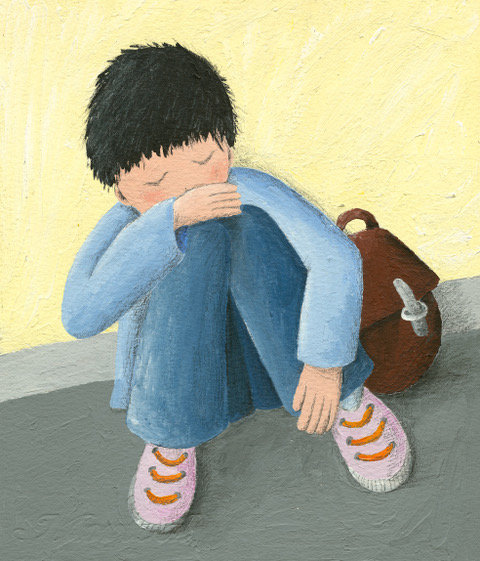Living with a Depressed Child: How You Can Help Children Diagnosed with Depression

Considering that almost 20% of kids and teens suffer depression before they reach adulthood, living with a child that has been diagnosed with depression is a very real reality for people today. With only 30% of depressed teens actually being treated for the constricting, consuming, and alarming mental condition, it’s important that more awareness and acceptance be shared regarding childhood depression.
If you are a parent, caretaker, guardian, brother/sister, or educator tasked with raising and looking after a depressed child or teen, here are some tips for helping ease their sad and anxious minds:
1.Manage the Warning Signs: Depression can have ebbs and flows in teens, especially children. It’s important to know when a child is suffering from a severe depression spell. Some of the biggest warning signs include: low self-esteem, withdrawal, lack of interest, hopelessness, excessive sleeping, feeling guilty and ashamed, lack of motivation, academic success deterioration, fatigue and aches, and thoughts of suicide or death.
2. Always Seek Out Professional Help: This is not on you to manage all by yourself. You are not a licensed professional, which is why you should absolutely seek out professional help for your child. Start by asking their pediatrician to seek further guidance, contacting local mental health services, and taking them to see a therapist. Be proactive and let the child know it’s acceptable that they pursue help and support. Don’t make it taboo.
3.Be Emotionally There for Your Child: Your child is going to need your emotional support, more than a child without depression. How can you be everything that they need you to be? Spend quality time with your child, have open conversations with them, listen to what they have to say, and acknowledge their inner struggles. Do not diminish the pain they are carrying.
4.Encourage a Balanced and Healthy Lifestyle: Physical and mental health are closely connected. Therefore, promoting unhealthy eating habits and zero exercise can contribute to your child’s depression. Encourage them to exercise regularly, eat healthy meals, and sleep regularly. Create a healthy schedule for them that they can replicate everywhere they go.
5.Help Your Child Feel Connected: Depression can falsely convince us that we are all alone, isolated, and unwanted. It’s just not true. Set up playdates, encourage your child to join after-school groups, and work with other parent’s kids to ensure they have friends and are surrounded by other kids. Make sure they understand that they are not alone in their fight.
Managing Adolescent Depression
Sometimes, there’s nothing you can do to prevent teenage depression. But, what you can do is make sure your child knows they are supported, listened to, and surrounded by a community of people who care. Help alleviate the feeling of isolationism that can make them feel sad, depressed, and many times, ill-equipped to handle school. Don’t allow their depression to sideline their future.
Be proactive. It starts today.
References:
https://www.healthychildren.org/English/health-issues/conditions/emotional-problems/Pages/Childhood-Depression-What-Parents-Can-Do-To-Help.aspx
https://www.nami.org/Blogs/NAMI-Blog/December-2018/5-Things-You-Can-Do-to-Help-Your-Child-with-Depres
 English
English